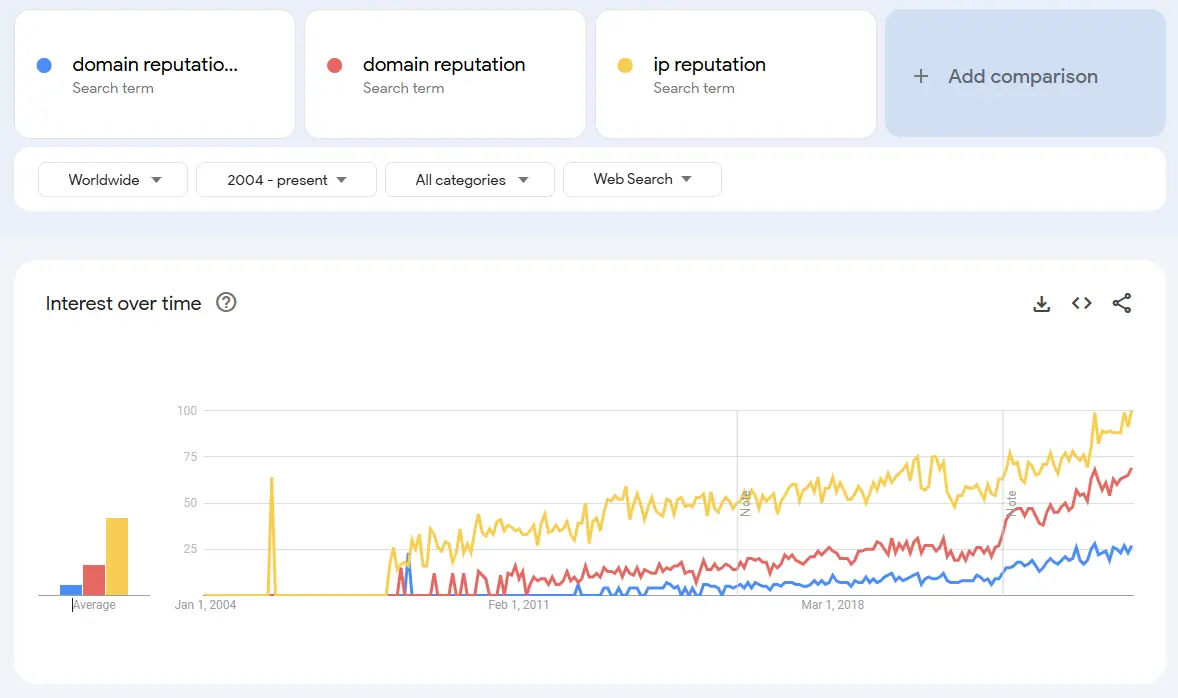In recent months, searches for domain reputation checks and IP reputation have surged. This shift reflects growing concerns about online security and how these factors affect a website’s trustworthiness. Understanding how Google’s Site Reputation Abuse Policy comes into play is key to managing your online presence.
What is Domain Reputation and Why Does It Matter?
Domain reputation refers to the overall trustworthiness of a website. Google considers factors like content quality, backlinks, and the site’s history of harmful activities. A bad reputation can lead to penalties or removal from search results. Websites flagged for malware or phishing violate Google’s Site Reputation Abuse Policy and often see a drop in rankings.
Search engines prioritize websites that provide a safe, valuable user experience. That’s why maintaining a good domain reputation is crucial for visibility in Google’s results.
How Does IP Reputation Impact Online Performance?
Just like domains, IP reputation plays a major role in online success. Email deliverability, for example, depends on your IP’s reputation. If your IP is linked to spam or harmful activities, email providers may send your messages to spam folders.
Google also tracks IPs for reputation. A bad reputation could affect not just emails, but overall website performance. Businesses are increasingly aware of how crucial IP reputation is for both email marketing and search engine rankings.
Related: Google Site Reputation Check… and Fails the Site Reputation Test
Why the Surge in Reputation Searches?
More businesses are focusing on domain reputation checks and IP reputation checks due to rising concerns about security and online trust. Poor reputation can impact everything from SEO rankings to email deliverability, making reputation management essential.
As the digital landscape grows, businesses are becoming more proactive about monitoring their reputations. Whether it’s to improve SEO or ensure emails land in inboxes, staying on top of reputation factors is now a priority.
How Google Enforces Site Reputation
Google uses algorithms and manual reviews to monitor websites and IPs for violations. If a site is flagged for malicious content, it may be removed from search results. This is a key part of Google’s Site Reputation Abuse Policy, which protects users from unsafe sites.
Google’s Safe Browsing tool warns users about harmful sites, and Google will penalize domains that don’t meet safety standards. Websites linked to malware or phishing risk removal from search results and a damaged reputation.
How to Protect Your Domain and IP Reputation
To stay compliant with Google’s Site Reputation Abuse Policy, it’s essential to regularly check your domain and IP reputation. Tools are available that allow businesses to monitor their domain and IP for any issues. By staying proactive, you can identify problems before they harm your online reputation.
For email marketers, checking your IP reputation ensures that your emails get delivered. For websites, regular domain reputation checks help you spot harmful activities that could lead to penalties or reduced visibility.
Consequences of a Damaged Reputation
If Google flags your domain or IP, you could face serious consequences. Websites with poor domain reputation may see a drop in rankings or get removed from search results entirely. For email marketers, a damaged IP reputation can result in emails being marked as spam, decreasing engagement and trust.
Ultimately, a bad reputation affects more than rankings or deliverability—it impacts your brand’s credibility. Maintaining a clean domain and IP reputation is essential for ongoing success.
Conclusion: Stay Ahead with Reputation Management
The rise in searches for domain reputation and IP reputation shows that businesses are increasingly focused on maintaining their online presence. Google’s Site Reputation Abuse Policy plays a significant role in determining whether websites and IPs are safe for users. Poor reputation can lead to penalties, lower rankings, and reduced trust.
Regular checks and active management of your domain reputation and IP reputation help protect your online presence. By staying on top of these factors, you can ensure your website remains visible, trusted, and secure in the ever-changing digital landscape.








